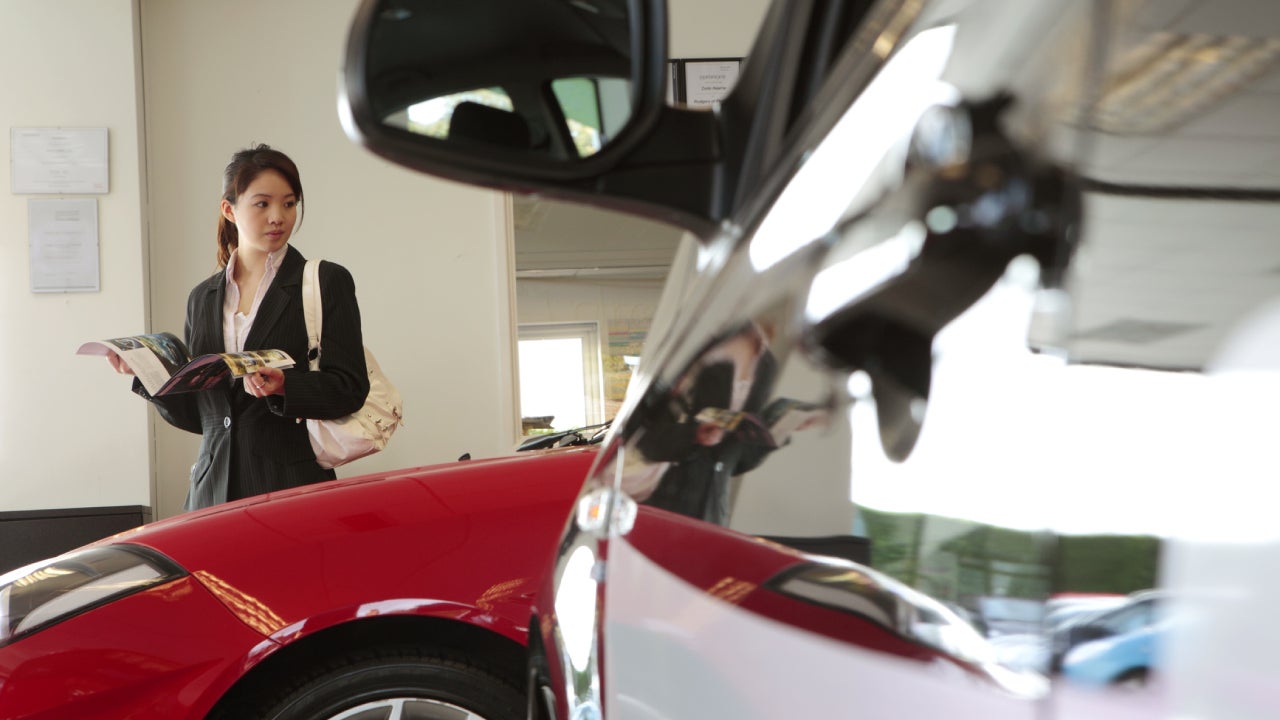Do you need insurance to register a car?

Car insurance is a legal requirement in nearly every state in the U.S. Vehicle owners must carry a minimum amount of coverage (determined by each state) to legally get behind the wheel. But do you need insurance to register a car? In many states, the answer is yes. Currently, 43 states require drivers to provide proof of car insurance coverage before applying for registration. However, the exact laws around car insurance for registration are slightly different in every state. Bankrate’s insurance editorial team explores where and when you need car insurance to register your car.
Do you need insurance to register a car?
There is not a definitive answer to the question: “Do you need insurance before registering a car?” It all depends on your location. The state you live in will determine whether you need car insurance or registration first, and whether you can get a car insurance policy after registration. In some states, you can get a license plate without insurance, but you cannot drive the car until it is insured. However, most states require you to get insurance before registration.
In every state except for New Hampshire, you must have a minimum amount of liability insurance to drive your car. Some states also require other coverages, which can include medical payments, personal injury protection and uninsured motorist insurance.
In New Hampshire, you must provide proof of financial responsibility, which demonstrates that you have the funds to pay for the injuries and property damage you might cause in an accident. This requires a deposit of money or securities with the New Hampshire Bureau of Financial Responsibility. If you cannot provide proof of financial responsibility, you will need minimum liability insurance, just like other states. In New Hampshire, the minimum coverage required is:
- $25,000 bodily injury liability per person
- $50,000 bodily injury liability per accident
- $25,000 property damage liability per accident
- $1,000 medical payments
- $25,000 uninsured motorist bodily injury liability per person
- $50,000 uninsured motorist bodily injury liability per accident
Required proof of insurance by state
There are seven states that do not require proof of insurance when registering your car. Those states are Arizona, Mississippi, New Hampshire, North Dakota, Tennessee, Washington and Wisconsin. The rest of the states require you to show proof of insurance that meets or exceeds the state minimum coverage before you can register your car.
What happens to my registration if my insurance expires?
If your insurance expires, your car registration may be suspended. If this happens, you will have to provide proof of insurance to renew your registration and may have to pay a fine or fee to reinstate the registration. The amount you have to pay and the process to reinstate your car registration varies by state.
Most states offer online registration systems to make it easier to maintain valid car registration. If there is an electronic filing system, it is likely connected to the insurance company, which will send an automated alert to the motor vehicle administration. When this occurs, you may receive a notice from your state’s Department of Motor Vehicles (DMV) to provide proof of insurance. While some states allow you to do this yourself, others require proof of insurance to be provided directly from the insurance company.
If your insurance expires and you do not correct the situation, you may be required to purchase SR-22 insurance. Despite the name, SR-22 is not a type of insurance itself, but is, rather, a certificate that is created by your insurance company that verifies that you carry the appropriate minimum amount of coverage for your state. An SR-22 is reserved for high-risk drivers, which can include drivers who allow their car insurance to lapse. Being considered a high-risk driver can also increase your auto insurance premiums well above the costs of a standard car insurance policy.
What do you need before driving a car?
What you need to have in place before driving your car varies slightly from state to state. You will be responsible for knowing what your state requires and ensuring that you’ve done everything needed to be on the road legally. Here are examples of what you are likely to need before getting behind the wheel:
- A valid driver’s license or learner’s permit: In all states in the U.S., you need a valid license or permit to drive on all public roads. This does not apply to roads on private property, however, or private driveways.
- Registration: All vehicles on public roads must be registered with a state DMV. Penalties may be incurred by drivers who do not register their cars.
- Proof of insurance: Car insurance is required in all states except New Hampshire. If you do not have insurance in New Hampshire, however, you are still liable for costs involved in an at-fault accident. Virginia also allows drivers to pay an uninsured motorist fee annually and drive legally without insurance.
- Proof of safety inspection: Many states require annual inspections to ensure that your car is able to be driven safely. Inspections may include an emissions test, depending on where you live.
Consequences of driving without insurance
A traditional auto insurance policy is legally required in most states. Most states have a law that requires drivers to provide proof of insurance coverage when requested by law enforcement. If you get caught driving without insurance, you can face a number of legal penalties, which depend on your location. Here are some of the most common penalties of driving without car insurance:
- License suspension: In many states, your driver’s license can be suspended if you get caught driving uninsured. You must provide proof of insurance coverage in order to reinstate your driving privileges.
- Vehicle impoundment: If you get pulled over and don’t have insurance, the officer can impound your vehicle in many states. To get your car back, you need to provide valid proof of insurance and pay a fee.
- Fines: Most states impose a fine for drivers who get caught without car insurance. The cost of the fine is different in every state, and fines often get more expensive with subsequent offenses.
- Jail time: If you have multiple driving without insurance offenses on your record, it is possible that you could face jail time in some states.
- SR-22 insurance: Some states require drivers to get SR-22 insurance if they get caught driving uninsured and have their license suspended. If you need an SR-22, you must find an insurance company that issues these certificates and pay a filing fee. Having an SR-22 on your record can also cause your insurance premium to increase.
Frequently asked questions
Why we ask for feedback Your feedback helps us improve our content and services. It takes less than a minute to complete.
Your responses are anonymous and will only be used for improving our website.
You may also like


Can you get car insurance without a license?

Do you need insurance to buy a car?





